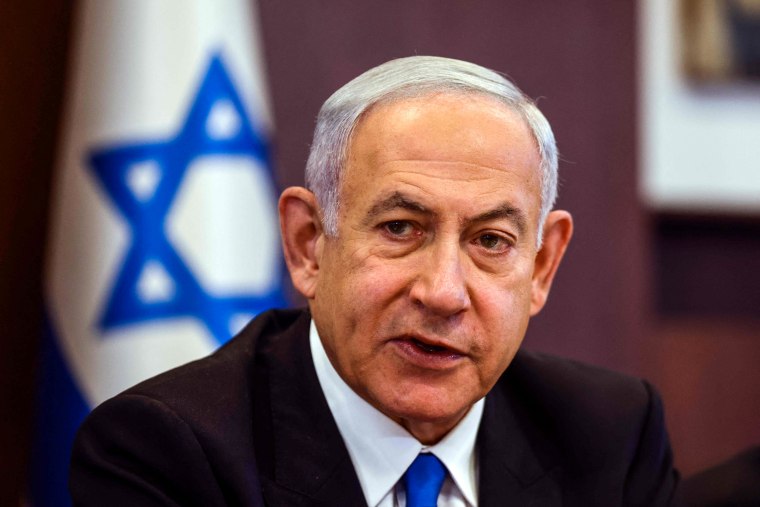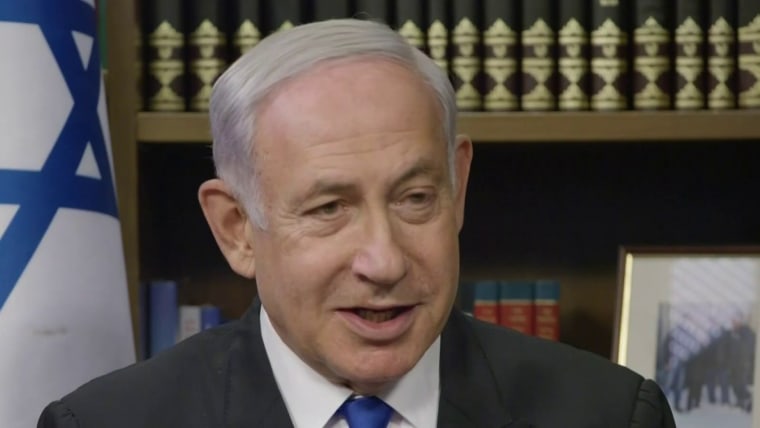[ad_1]
President Joe Biden is meeting with Israeli Prime Minister Benjamin Netanyahu on Wednesday morning on the sidelines of the United Nations General Assembly in New York.
The bilateral meeting comes amid tensions between the two leaders over Netanyahu’s judicial overhaul plan and a day after Biden touted Israel’s increased ties to its neighbors in an address to the General Assembly.
“Today, we’re going to discuss some of the hard issues,” Biden said in remarks before the meeting. “And that is upholding democratic values that lie at the heart of our partnership, including the checks and balances in our systems and preserving a path to a negotiated two-state solution and ensuring that Iran never, never acquires a nuclear weapon.”

In a briefing last week, national security advisor Jake Sullivan told reporters that the leaders would “discuss a range of bilateral and regional issues focused on the shared democratic values between the United States and Israel and a vision for a more stable and prosperous and integrated region, as well as to compare notes on effectively countering and deterring Iran.”
In remarks before the meeting, Netanyahu said that he thinks under Biden’s leadership, the countries can “forge a historic peace between Israel and Saudi Arabia.”
“I think such a peace would go a long way for us to advance the end of the Arab-Israeli conflict, achieve reconciliation between the Islamic world and the Jewish state and advance a genuine peace between Israel and the Palestinians,” Netanyahu said, referring to the normalization of relations between his country and Saudi Arabia, which is something Biden has been pushing for.
Netanyahu’s comments came after Biden said he thought a planned “economic corridor” connecting India, the Middle East and Europe through rail and shipping lines, which he said will run through Saudi Arabia, United Arab Emirates and Israel, would have “enormous promise.”
“I think it’s a big deal, and we’re working on a lot more together,” Biden said.
That project, discussed at the G20 meeting of leading and developing nations earlier this month, is meant as a way to China’s influence among poorer countries.
Biden met at the White House in July with Israeli President Isaac Herzog, who holds a largely ceremonial position, to discuss the Israel-Palestinian conflict and Iran’s nuclear program. A day before that meeting, Biden spoke on the phone with Netanyahu and called for “the need for the broadest possible consensus” in the debate over his judicial overhaul efforts, the White House said. Biden also “expressed concern” about settlement growth and reiterated a need to “maintain the viability of a two-state solution and improve the security situation in the West Bank.”
John Kirby, a spokesperson for the White House National Security Council, had previously said in July that Biden and Netanyahu would meet in the fall.
As Wednesday’s meeting began, Biden told Netanyahu, “I hope we will see each other in Washington by the end of the year,” according to the pool report.
During Tuesday’s speech to the United Nations, Biden praised efforts to create a more “integrated Middle East.”
“It demonstrates how Israel’s greater normalization and economic connection with its neighbors is delivering positive and practical impacts even as we continue to work tirelessly to support a just and lasting peace” between Israelis and Palestinians, Biden said.
Biden will also hold a bilateral meeting with Brazilian President Luiz Inácio Lula da Silva later Wednesday. The U.S. president will then participate in campaign receptions in the afternoon before departing New York for the White House in the evening.
[ad_2]
Source link

